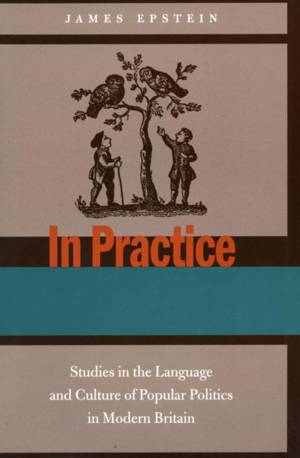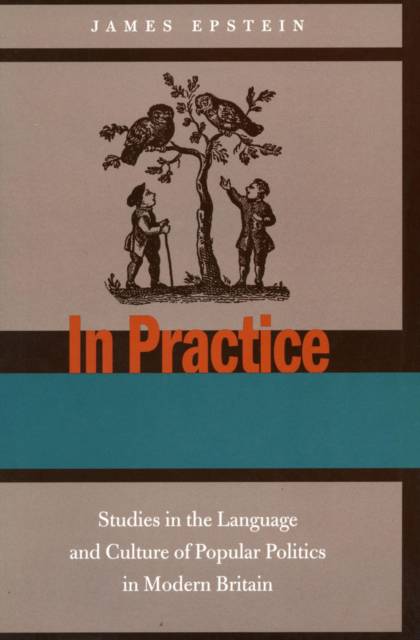
- Afhalen na 1 uur in een winkel met voorraad
- In januari gratis thuislevering in België
- Ruim aanbod met 7 miljoen producten
- Afhalen na 1 uur in een winkel met voorraad
- In januari gratis thuislevering in België
- Ruim aanbod met 7 miljoen producten
In Practice
Studies in the Language and Culture of Popular Politics in Modern Britain
James EpsteinOmschrijving
This book reflects on popular politics in Britain during the turbulent period of industrialization, focusing on how political meanings were produced and sustained. It is also a spirited series of responses to the changing terrain of historical studies. It takes as its starting point the goal of defining a middle ground between E. P. Thompson's concept of cultural materialism and the postmodern view of culture as a system of signs and codes (with emphasis on the linguistic grounding of experience). The first part of the book evaluates and critiques the work of two of the most influential proponents of the linguistic turn in British historical writing: Gareth Stedman Jones and Patrick Joyce. The second part contains four case studies: the first two treating British political culture in the age of the French Revolution, the third dealing with the role of space in historical reasoning, and the fourth assessing the role of gentleman leaders within popular movements.
Specificaties
Betrokkenen
- Auteur(s):
- Uitgeverij:
Inhoud
- Aantal bladzijden:
- 224
- Taal:
- Engels
Eigenschappen
- Productcode (EAN):
- 9780804746625
- Verschijningsdatum:
- 24/12/2002
- Uitvoering:
- Hardcover
- Formaat:
- Genaaid
- Afmetingen:
- 164 mm x 233 mm
- Gewicht:
- 435 g

Alleen bij Standaard Boekhandel
Beoordelingen
We publiceren alleen reviews die voldoen aan de voorwaarden voor reviews. Bekijk onze voorwaarden voor reviews.









